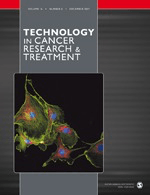
TECHNOLOGY IN CANCER RESEARCH & TREATMENT
Scope & Guideline
Pioneering the future of oncology with cutting-edge research.
Introduction
Aims and Scopes
- Innovative Treatment Modalities:
The journal emphasizes the development and evaluation of novel treatment approaches, including targeted therapies, immunotherapies, and combination therapies aimed at improving efficacy in various cancer types. - Biomarker Discovery and Validation:
Research on identifying, validating, and utilizing biomarkers for cancer diagnosis and prognosis is a core area, facilitating personalized medicine strategies and improving patient stratification. - Radiotherapy Techniques and Innovations:
A significant focus is placed on advancements in radiotherapy, including novel delivery techniques, dosimetry, and the integration of imaging technologies to enhance treatment precision and minimize side effects. - Machine Learning and AI Integration:
The journal explores the application of machine learning and artificial intelligence in predicting treatment responses, optimizing therapeutic approaches, and enhancing diagnostic accuracy in oncology. - Molecular and Cellular Mechanisms:
Research on the underlying molecular and cellular mechanisms of cancer progression and treatment resistance is crucial, focusing on pathways, gene expression, and the tumor microenvironment. - Translational Research:
The journal promotes studies that translate laboratory findings into clinical applications, bridging the gap between research and practical treatment paradigms. - Multimodal Imaging Techniques:
A focus on the development and application of advanced imaging techniques for better detection, monitoring, and treatment planning in cancer care.
Trending and Emerging
- Integration of AI and Machine Learning:
There is an increasing trend in the application of AI and machine learning for predictive analytics, treatment personalization, and diagnostic accuracy, highlighting the importance of data-driven approaches in oncology. - Focus on Tumor Microenvironment and Immune Response:
Research exploring the tumor microenvironment, including immune cell interactions and immunotherapy responses, is gaining momentum, reflecting the importance of immune modulation in cancer treatment. - Personalized Medicine and Genomic Approaches:
A significant rise in studies focused on personalized medicine, including genomic profiling and targeted therapy based on individual patient characteristics, is evident, aligning with the shift towards more tailored cancer therapies. - Advanced Biomaterial Applications:
Innovations in biomaterials for drug delivery, imaging, and therapy are on the rise, showcasing their potential in enhancing treatment efficacy and minimizing side effects. - Nanotechnology in Cancer Treatment:
Research on nanotechnology applications in cancer diagnosis and treatment is increasingly prominent, indicating a growing interest in utilizing nanoscale materials for targeted therapy and imaging. - Exploration of Non-Coding RNAs:
The role of non-coding RNAs, including microRNAs and long non-coding RNAs, in cancer biology and therapy resistance is becoming a hot topic, reflecting their potential as biomarkers and therapeutic targets. - Use of Real-World Data and Outcomes Research:
There is a growing trend towards utilizing real-world data to assess treatment outcomes and patient experiences in cancer care, providing valuable insights beyond clinical trial settings.
Declining or Waning
- Traditional Chemotherapy Studies:
There is a noticeable decrease in studies focusing solely on traditional chemotherapy regimens without the incorporation of novel agents or combinatory approaches, reflecting a broader trend towards personalized and targeted therapies. - Basic Laboratory Studies Without Clinical Relevance:
Research that does not translate into clinical applications or lacks direct relevance to patient care is becoming less common, with a greater emphasis on translational and applied research. - Single-Agent Targeted Therapies:
Publications focusing exclusively on single-agent therapies without exploring combination strategies or resistance mechanisms are declining, as the complexity of cancer treatment necessitates multifaceted approaches. - Conventional Radiotherapy Techniques:
There is a diminishing interest in traditional radiotherapy techniques, with more attention shifting towards advanced modalities such as proton therapy and stereotactic body radiotherapy that promise better outcomes. - General Cancer Epidemiology Studies:
Research that solely focuses on cancer epidemiology without a technological or interventional aspect is less frequently published, indicating a shift towards studies that involve direct technological applications.
Similar Journals
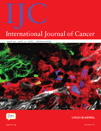
INTERNATIONAL JOURNAL OF CANCER
Empowering discoveries in oncology and cancer biology.INTERNATIONAL JOURNAL OF CANCER, published by Wiley, stands as a premier platform for the dissemination of cutting-edge research in the fields of cancer research and oncology. With an impressive impact factor reflecting its rigorous peer-review process and significant contribution to the scientific community, this journal is categorized in Q1 for both Cancer Research and Oncology as of 2023. It boasts notable rankings, being placed 38th among 404 journals in Medicine - Oncology and 32nd among 230 in Biochemistry, Genetics, and Molecular Biology - Cancer Research, positioning it within the 90th and 86th percentiles, respectively. Since its inception in 1966 and continuing to 2024, the journal has played a pivotal role in advancing our understanding of cancer biology, treatment modalities, and innovative therapeutic approaches. While it operates under a subscription model, the journal is committed to making valuable research accessible to a broader scientific audience. Researchers, professionals, and students alike will find the INTERNATIONAL JOURNAL OF CANCER an essential resource for staying abreast of the latest advancements in cancer science.
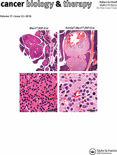
CANCER BIOLOGY & THERAPY
Empowering breakthroughs in cancer biology and therapy.CANCER BIOLOGY & THERAPY is a premier open-access journal published by Taylor & Francis Inc, dedicated to advancing the field of cancer research and treatment. Since its inception in 2002, the journal has evolved to provide a platform for innovative research and groundbreaking findings, addressing critical aspects of cancer biology, pharmacology, and molecular medicine. With an impressive impact factor and recognition as a Q2 journal in vital categories such as Cancer Research, Oncology, and Pharmacology, it holds significant standing in Scopus rankings, reflecting its influence and commitment to disseminating high-quality research. Offering researchers, professionals, and students a wealth of knowledge, CANCER BIOLOGY & THERAPY stands at the forefront of the fight against cancer, presenting the latest developments and therapeutic strategies vital for improving patient outcomes. Accessible to all since 2022, this journal is a must-read for anyone involved in the multifaceted arena of cancer research and treatment.

Discover Oncology
Transforming clinical practices with cutting-edge findings.Discover Oncology, published by SPRINGER, is an influential journal based in Germany that focuses on the latest advancements in the fields of oncology and endocrinology. With an evolving scope that spans critical research from 2021 to 2024, this journal aims to provide a platform for innovative ideas and research findings that can significantly impact clinical practices. Although it currently holds a Q3 ranking in several Cancer Research and Endocrine category quartiles, its commitment to open access ensures that relevant knowledge is available to a wider audience, facilitating the exchange of ideas among researchers, professionals, and students. As evidenced by its growing presence in various medical spheres, including a Q2 ranking in Endocrinology and Diabetes, the journal plays a crucial role in advancing multidisciplinary research that integrates oncology with broader biological and medical parameters. For those in the field, Discover Oncology serves as both a resource and a community hub, encouraging collaboration and exploration of emerging findings that can lead to novel therapeutic approaches.
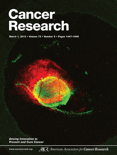
CANCER RESEARCH
Fueling the fight against cancer through rigorous research.Cancer Research, published by the American Association for Cancer Research, is a premier journal in the field of oncology, renowned for its commitment to advancing cancer research since its inception in 1941. With an impressive impact factor reflecting its vital role in the field, this journal consistently ranks in the Q1 quartile for both Cancer Research and Oncology, positioning it among the top 7.5% of journals in these categories. The journal serves as a crucial platform for researchers, professionals, and students to disseminate and gain insights into groundbreaking studies that shape our understanding of cancer biology, prevention, diagnosis, and treatment. While it is not an open-access publication, its rigorous peer-review process ensures that only high-quality research is published, thus maintaining a standard of excellence in the scientific community. With a strong legacy and an ever-expanding influence, Cancer Research continues to be essential for anyone dedicated to the fight against cancer, showcasing cutting-edge research that drives scientific discovery and innovation.

Turk Onkoloji Dergisi-Turkish Journal of Oncology
Shaping the future of oncology with dedicated research and expertise.Turk Onkoloji Dergisi - Turkish Journal of Oncology, published by KARE PUBL, serves as a vital platform in the field of oncology, specifically catering to the Turkish-speaking research community and contributing to global discourse. With an ISSN of 1300-7467, this journal, which has been in circulation since 2007 and continues until 2024, recognizes the importance of advancing medical knowledge in cancer research through rigorous peer-reviewed articles. Although currently positioned in the Q4 category of oncology journals with a Scopus rank of #344 out of 404, the journal is dedicated to fostering significant research insights and innovative perspectives on cancer treatment and prevention. While it does not currently offer open access, its content is essential for professionals, researchers, and students aiming to enhance their understanding of oncology developments in Turkey and beyond. The Turkish Journal of Oncology not only aspires to improve the quality of cancer care but also strives to enhance collaboration among researchers, thereby influencing future oncology practices.

ANNALS OF ONCOLOGY
Advancing cancer research, one study at a time.ANNALS OF ONCOLOGY, published by Elsevier, stands as a premier journal in the field of oncology, hematology, and general medicine, with a notable impact factor that underscores its significance in advancing cancer research and clinical practice. Established in 1990, this journal has become a highly respected source of information, consistently ranked in the Q1 category in its respective fields, showcasing its influence and credibility (Rank #4/404 in Oncology and Rank #2/137 in Hematology as per Scopus rankings). With a focus on innovative therapies, clinical trials, and emerging research, ANNALS OF ONCOLOGY serves as an essential resource for researchers, clinicians, and students dedicated to unraveling the complexities of cancer treatment and care. Although offering restricted access options, its impactful studies and discoveries continue to shape the future of oncology.
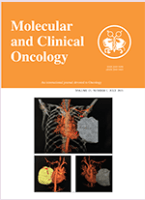
Molecular and Clinical Oncology
Advancing cancer research for a healthier tomorrow.Molecular and Clinical Oncology is a dynamic journal published by SPANDIDOS PUBL LTD, aimed at advancing the understanding of cancer biology and treatment modalities. With an ISSN of 2049-9450 and an E-ISSN of 2049-9469, the journal serves as a critical platform for researchers and clinicians dedicated to uncovering novel insights in molecular oncology and enhancing clinical practices. As a testament to its growing influence, the journal has achieved a Q3 ranking in Oncology and a Q4 ranking in Cancer Research for the year 2023, reflecting its commitment to publishing high-quality research. Although currently not an Open Access publication, the journal offers crucial subscription options, ensuring comprehensive access to groundbreaking studies and innovations in the field. With converged years spanning 2018 to 2024, the journal is set to continue enriching the academic community with its valuable contributions, ultimately empowering researchers, professionals, and students engaged in the fight against cancer.
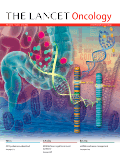
LANCET ONCOLOGY
Discovering innovative solutions for complex oncology challenges.The Lancet Oncology is a premier peer-reviewed journal published by Elsevier Science Inc., recognized as a leading authority in the field of oncology. With an ISSN of 1470-2045 and E-ISSN 1474-5488, this esteemed journal boasts an impressive 2023 impact factor placing it in the Q1 category of oncology—reflecting its role as a critical resource for cutting-edge research. The journal publishes high-quality articles covering novel scientific discoveries, clinical advancements, and public health issues related to cancer treatment and prevention. It is ranked #5 out of 404 in the Scopus Medicine _ Oncology category, demonstrating its influence and relevance in the field, with an outstanding rank in the 98th percentile. Operating from its base in the United Kingdom, The Lancet Oncology spans a comprehensive timeframe from 2000 to 2024, making it a vital repository of oncology literature. Although it does not primarily operate on an open-access model, its significant subscription base ensures that a wealth of knowledge is accessible to researchers, professionals, and students alike, fostering a profound understanding and advancement in oncology.
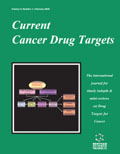
CURRENT CANCER DRUG TARGETS
Advancing targeted therapies for a cancer-free tomorrow.CURRENT CANCER DRUG TARGETS is a prominent academic journal published by Bentham Science Publishers Ltd, focusing on the critical intersection of cancer research and innovative drug development. Since its inception in 2001, this journal has offered a platform for the dissemination of cutting-edge research aimed at advancing targeted cancer therapies, contributing significantly to the fields of Cancer Research, Drug Discovery, Oncology, and Pharmacology. With a respectable impact factor and consistent ranking in its respective categories, including Q2 in Drug Discovery and Pharmacology, it positions itself as an invaluable resource for researchers, clinicians, and students alike. CURRENT CANCER DRUG TARGETS is dedicated to enhancing our understanding of novel therapeutic targets and methods, thereby fostering a collaborative environment for knowledge exchange in the ever-evolving landscape of cancer treatment.

CELLULAR ONCOLOGY
Connecting Minds to Combat CancerCELLULAR ONCOLOGY is an esteemed open access journal published by SPRINGER since 2004, specializing in the dynamic field of oncological research. With its ISSN 2211-3428 and E-ISSN 2211-3436, this journal plays a pivotal role in disseminating cutting-edge findings and innovative methodologies that address cancer at the cellular level. The journal has consistently achieved high-impact recognition, currently holding a Q2 rating in Cancer Research and Q1 rankings in Medicine (miscellaneous), Molecular Medicine, and Oncology as of 2023. Furthermore, it ranks 56th in oncology medicine and 48th in cancer research according to Scopus, placing it firmly within the top echelons of its field. Published in the Netherlands, with an aim to connect scientists, clinicians, and practitioners worldwide, CELLULAR ONCOLOGY fosters a collaborative environment for researchers to share insights, enhance understanding, and advance treatments. The journal’s open access model ensures that ground-breaking research is freely available, facilitating greater visibility and impact within the scientific community and beyond.